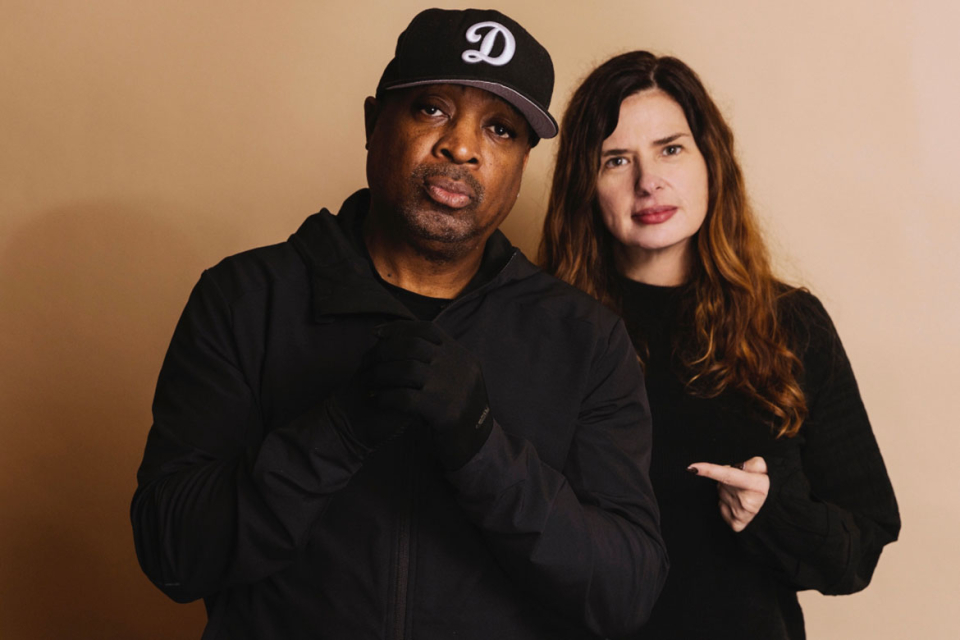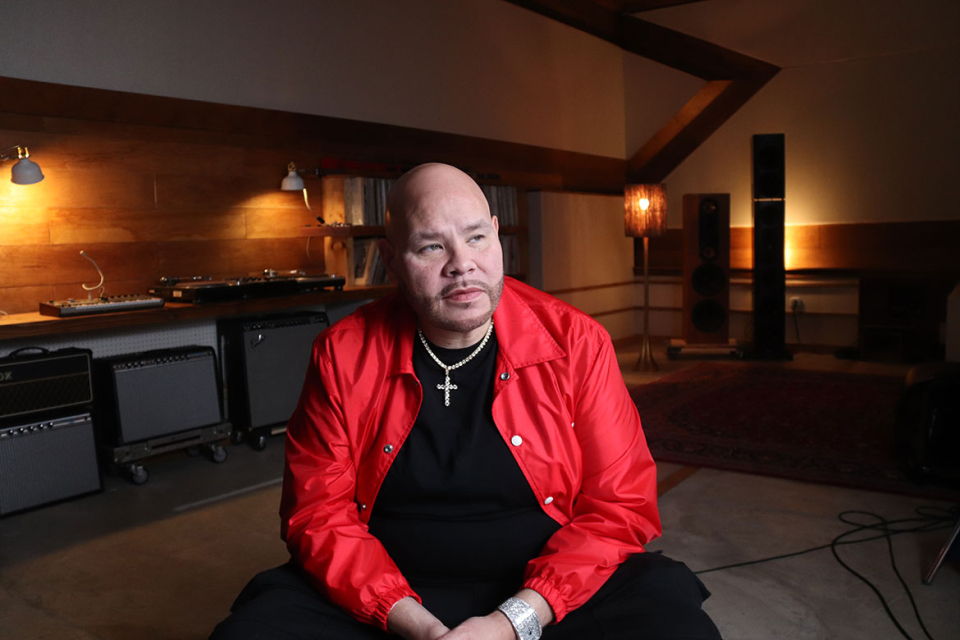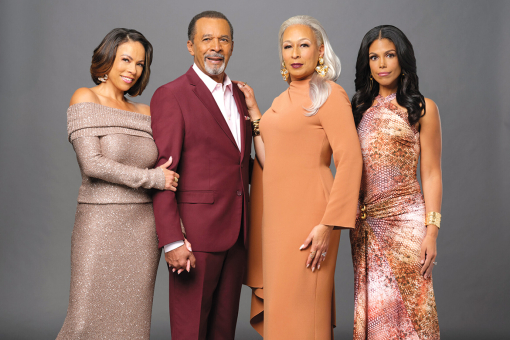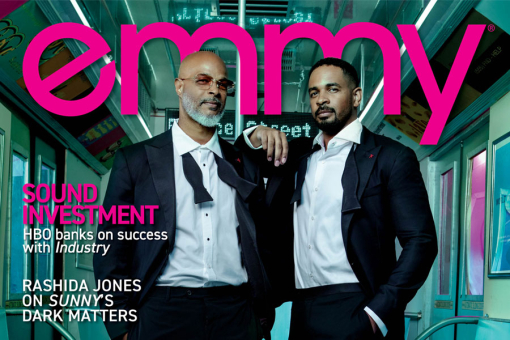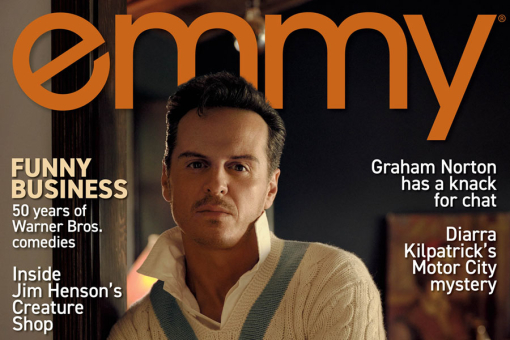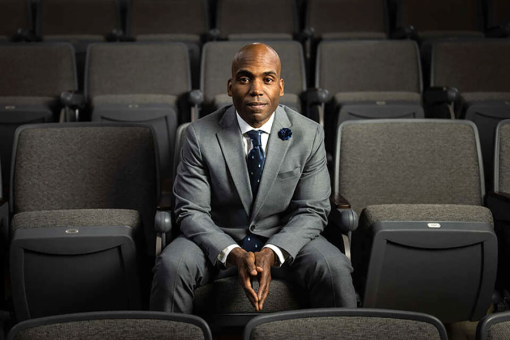Hip-hop turns 50 this year. In those five decades, the once-underground musical genre grew from a back-to-school party officiated by DJ Kool Herc one night in the Bronx to a global phenomenon. Naturally, milestone birthdays offer opportunities to reflect on legacy and impact — one of the reasons the new PBS docuseries Fight the Power: How Hip Hop Changed the World — premiering January 31 — feels like essential viewing for the moment.
Produced in partnership with BBC Music, the four-part series is an exhilarating, intellectual unpacking of how hip-hop rose from the decay that was 1970s New York City and has remained a societal mirror since. Chuck D, frontman of the seminal group Public Enemy, developed Fight the Power (also the title of Public Enemy's best-known song) with producing partner Lorrie Boula. Over its four parts, the series uses archival footage, scholarly voices and interviews with influential rap artists — including Ice-T, Fat Joe and Run DMC — to examine how hip-hop is inexorably connected to politics, capitalism, structural racism and the innovative spirit of Black and Brown youth. Emmys.com recently caught up with Chuck D and Boula to rap about Fight the Power and what it has to say.
Chuck, you've been stressing the importance of hip-hop as a journal and historical guide for decades. How long has this project been on your mind?
Chuck D: It's always been in my head. But how to connect those dots in the world of television, I had no vision to go forward, multimedia-wise. That's all Lorrie's connections, skill, ability and wherewithal. Because being in an art form, sometimes you're like, 'This is what I do. Fuck the rest.' Sometimes you can write half the story, but in order for the story to be told fully, it takes other people and other skill sets.
Lorrie, can you talk about producing this? How long did it take? How'd you compile the archival footage and craft Chuck's narration?
Boula: We'd talked about it many times, but we really got into the nitty-gritty about three years ago. We wanted to show the importance of hip-hop, but also [how] it's a call and response to social justice issues and socio-economic issues. Because as it has become commercialized, some of those things maybe seem lost, but they're still hugely important. It was by design that we worked with the BBC and PBS; PBS really embraced it and added a lot. It was important to get the history right. The reason why it took us so long was because of Covid. We were translating a very American story to an amazingly talented team, but that was UK-based. The BBC brought in some great archival producers and editors. Chuck and I gave copious notes and drove people crazy.
Lorrie, you're Italian, and there might be some people who'd look at you and think, 'What's this white lady know about the origins of hip-hop?' But you're Chuck's manager... can you break down your bona fides to tell this story and why you thought it was important?
Boula: I was born and raised in the South Bronx in the '70s. I grew up watching this thing be born. I spent time at Crotona Park watching Grandmaster Flash. We talked about [this] in episode one: the thing we all had in common is that we were all really poor, and nobody cared about us. And the response was, 'Fuck you. We're not gonna take it, we're gonna dance in the street.' Literally. The whole art form started as protest music, whether it was party protest at first, or political protest, or drug protest.
To that point, the series does a great job of contextualizing how hip-hop of the '80s and '90s was a response to socio-political elements such as police brutality. But some might say, 'What about the rapping about sex, clothes and jewelry?' And do you think the hip-hop of today has that same sense of protest it once did?
Chuck D: Well, the key is management. Curators have muddied the water so much from the corporate ends. But it came out of Black folks. They're here because of sex, and they need money to pay their bills. That's a reality. We're not saying you shouldn't have it in the music; that's reality. So, yes, [hip-hop] has this pop narrative to it. However, where it comes from, rising from the ashes of how they were left hanging in the Bronx at that particular time, [hip-hop] was able to give a lot of people something to do when everything else was stripped away. That's what this is about.
This interview has been edited and condensed for clarity.
Fight the Power: How Hip Hop Changed the World is produced by BBC Studios for PBS and BBC Music. Bill Gardner is the Executive in Charge for PBS with Chuck D and Lorrie Boula as executive producers. Max Gogarty is the commissioning editor for the BBC, with Anna Sadowy as executive producer, Helen Bart as series producer, Yemi Bamiro as series director and Todd Williams as director.



